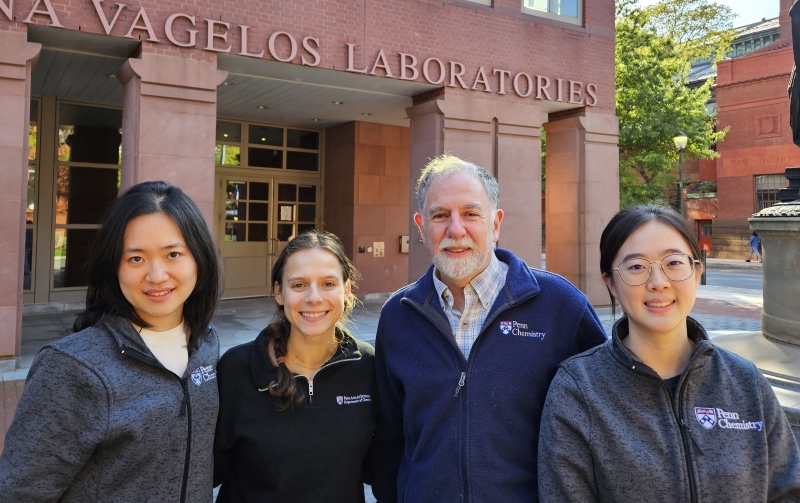Thomas Mallouk and Colleagues Awarded $5 Million in Funding for Energy Earthshot Research

Thomas Mallouk, Vagelos Professor in Energy Research and Chair of the Department of Chemistry, and colleagues have been awarded $5 million over three years from the Department of Energy, as part of its Energy Earthshot program. Mallouk’s team—which includes Karen I. Winey and Aleksandra Vojvodic from Penn’s School of Engineering and Applied Science, as well as collaborators from three other academic institutions and one national lab—makes up one of the program’s 18 funded academic research centers.
“We’re focusing on the science of bipolar membranes, which have been used for decades for chemical separations, but only recently in renewable energy applications,” Mallouk explains.
Two of the new applications involve electrolyzers that split water into hydrogen and oxygen or convert carbon dioxide into carbon-containing fuels. But it can be challenging to control pH and ion balance in these devices. In 2014, Mallouk’s lab and another at Caltech that happened to be working on a similar problem discovered that bipolar membranes—paper-thin sponges that conduct positively charged ions on one side and negatively charged ions on the other—could help. It was the first realization of their potential.
“Since then, our group and others have expanded the range of applications of bipolar membranes in renewable energy conversion,” Mallouk says. For example, they’re being studied for possible use in making green hydrogen from water, liquid fuels from carbon dioxide, fuel cells for making electricity from hydrogen, and redox flow batteries for long-duration electrical energy storage, as well as for direct carbon dioxide capture from the ocean.
“By combining new kinds of membrane components with theory and physical characterization on all the relevant length scales, we hope to understand more about how bipolar membranes work,” Mallouk says. “We can exploit that knowledge to make electrochemical energy conversion more efficient and cost effective, and to invent new kinds of electrochemical devices based on novel membrane concepts.”
The work fits well within the aim of the Energy Earthshot, which brings together researchers from a variety of institutions to work on basic science that can accelerate the transition from fossil fuels to a renewable energy economy. Projects are focused on one of seven different areas: going carbon negative, geothermal, floating offshore wind, hydrogen, industrial heat, long-duration storage, and clean fuels and products. Funding for all projects totaled $264 million.






